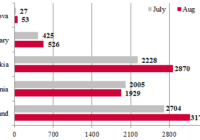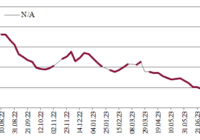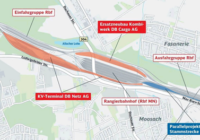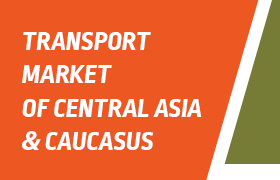Архiви
Handling of grain wagons at Ukraine’s sea ports
About 3,500 wagons with grain were waiting for unloading at Ukrainian sea ports as of August 10. Taking into account that approximately 119 wagons per day are accepted at the stations, it will take about 29 days to process all these wagons.
Wagon queues at land border crossings*
Ukraine announces temporary corridors for vessels navigating to/from Black Sea ports
The information on new temporary routes for civilian vessels to and from Ukraine’s Black Sea ports was published in the Order of the Navigational Report of the Ukrainian Navy No. 6 of August 8.
New logistics center to be built in port of Gdansk
The construction of a new logistics complex CTPark Gdansk Port with a total area of 119,000 square meters is underway near the port of Gdansk, which will be divided into two zones of 81,400 square meters and 37,500 square meters. The new facility will become part of the Pomeranian Investment Center, an industrial park…… Read more »
Repair work on railway infrastructure and temporary suspension of traffic
Intermodal operator METRANS, a part of the European logistics company Hamburger Hafen und Logistik AG, has announced a one-day suspension of rail operations at the Burchardkai and Eurogate/Eurokombi terminals in the port of Hamburg from August 12 to 13.
Romanian port of Constanta to open anchorage for large-tonnage ships
At a meeting with representatives of the European Commission and Ukraine, Romanian Transport Minister Sorin Grindeanu announced his readiness to put into operation an anchorage at the port of Constanta.
Voestalpine Railway Systems JEZ to supply track devices for La Llagosta terminal near Barcelona
Voestalpine Railway Systems JEZ has won a tender and been awarded a contract for the supply and transportation of track devices that will connect the La Llagosta intermodal terminal with the Mediterranean Corridor via standard gauge.
Germany. Construction of new cargo terminal in Munich
Shipping conditions on Rhine temporarily improved
In some parts of the main shipping route of the Rhine River, the traditional drop in water levels at this time of year is hampering traffic (a situation that has been worsening in recent years due to climate change) and forcing companies operating from the region’s river terminals to look for alternative ways to…… Read more »








